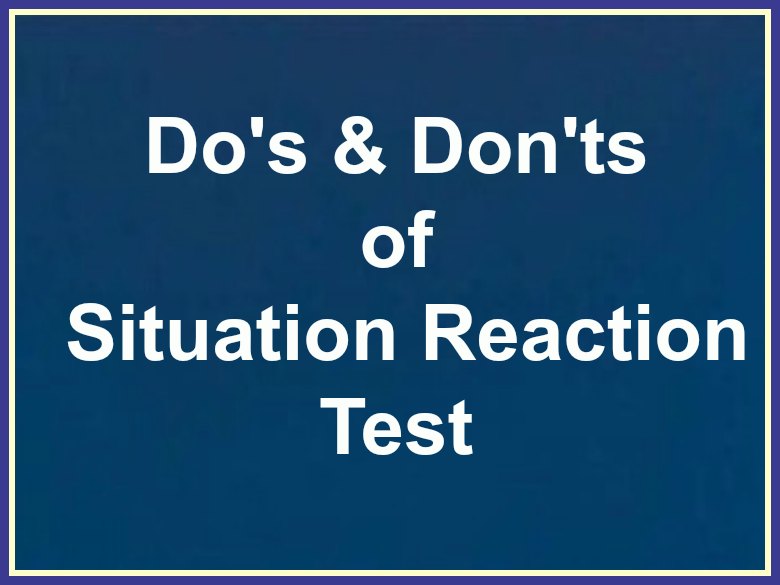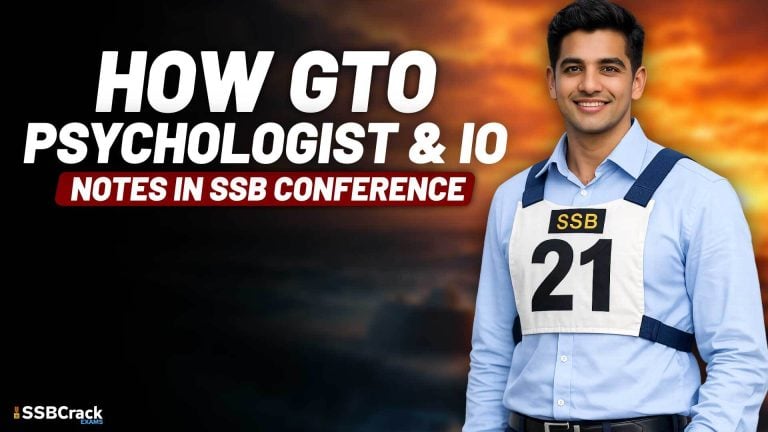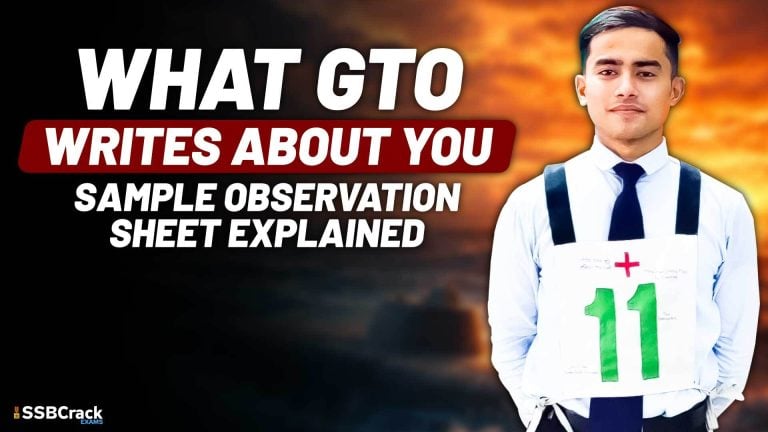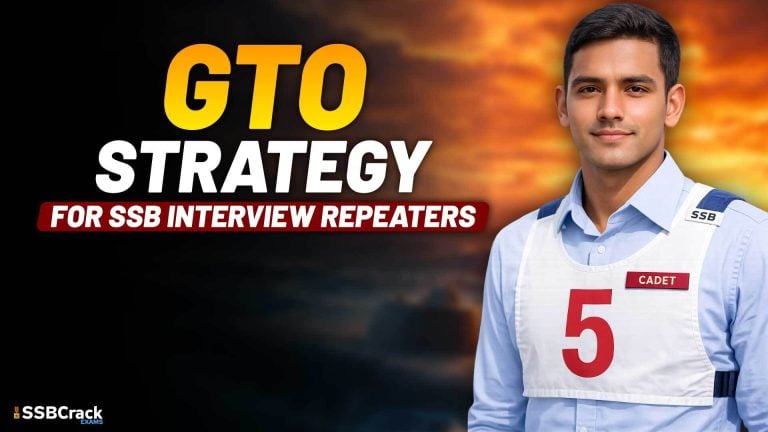Situation Reaction Test in SSB is another test at Service Selection Boards in Psychologist series, this is the test of candidate’s common sense, he/she will be given some situations that occur in daily life and their answer will help the Psychologist to judge candidate’s mentality.
In this test, certain situation is described and the candidate is required to answer with the most suitable reaction to the given situation. The test judges the reasoning power of the candidate and his ability to act correctly and promptly to a situation that may arise in emergency.
What is Situation Reaction Test in SSB
In the test you have to answer 60 questions in 30 minutes. The questions will consist of certain situation that you are present in and you required to act immediately to the situation. So your reaction and action to the situation will be your answer. Situation Reaction Test tend to determine behavioral tendencies, assessing how a candidate will behave in a certain situation, and knowledge instruction, which evaluates the effectiveness of possible responses.
Sample Question and Answer of Situation Reaction Test
Question: On reaching the railway station, you find that the train you wanted to catch is just to start and there is hardly any time for purchasing the ticket. The best thing for you is to__
Answer: rush to the train rather than miss it and inform the T.T.I. at the next stoppage about your inability to purchase the ticket.
Question: He is asked to organize a variety show in the aid of jawan Welfare in his unit. He__
Answer: accepts the responsibility, makes a detailed programme of the variety entertainment show, carries out extensive rehearsals and ensures that the variety show I performed to the best.
Question: Whenever he is required to take new step. He__
Answer: goes more about details, makes extensive efforts, does lot of reading and takes the right step to succeed in the mission.
Question: His friend lost his job and into financial difficulties. He___
Answer: helps his friend to the best of his ability by giving financial and moral support and see that his friend recover from the loss.
Question: Bharat Bandh is likely to be declared while you are on leave. Your leave is to be finished after two days of commencement of Bandh. He__
Answer: get In touch with the unit via telephone, in view of Bharat Bandh, leaves his house in sufficient time so that he is not late for duty.
Question: You have to go for patrolling duty in field. Your driver is having high fever. He__
Answer: give medication to the driver suffering from high fever, take to wheels and drive the vehicle personally and conduct the patrolling.
Question: You are required to dig trenches, but your colleagues are not co-operating with you. He__
Answer: Motivates colleagues, ensure they realize the essentials of digging trenches, and contribute effectively.
Question: He felt that the work he is presently engaged is useless. He__
Answer: Tries to develop interest in the job, take the job more seriously and enjoy the work.
Do’s and Don’ts of Situation Reaction Test
In this article we will discuss some basic Do’s and Don’ts of Situation Reaction Test that a candidate should keep in mind before writing SRT.
Do’s:
- Provide sensible and practical solution.
- Use proper punctuation and pauses in the sentence. Assessor has to see that you know what you are writing.
- On similar kind of situation it’s better to answer with same type answers.
- Read the situation properly before answering to understand the context of the place.
- Practice as many questions as you can prior to sitting your assessment. This will enable you to familiarize yourself with the typical format of the questions and the type of responses that are required.
- Keep the response short and true to your self-personality i.e. how you actually going to react in the situation instead of imagining one.
Don’ts:
- Avoid quick jump on conclusion, providing different answers for similar kind of situation will show the assessors that you are not confident on your views.
- Silly grammar mistakes: Read while you are writing to avoid silly mistakes.
- Do not write your reaction. For example don’t write “I will be shocked” or “I will be confused” or “I will deal with the situation”.
- Do not skip a situation in between, it projects that you are trying to run away from that situation.
- Bear in mind that you are not being judge on right or wrong answer but you are being judged on your evaluation capability of a situation. Keep a different mind-set, this test is nothing like your regular classroom tests.
- The quality of response matters not the quality, but this does not give the freedom to think and write less.








